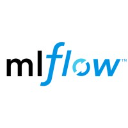
MLFlow : Open-Source Platform for Managing the ML Lifecycle
MLFlow: in summary
MLflow is an open-source platform designed to manage the complete machine learning (ML) lifecycle, including experimentation, reproducibility, deployment, and a central model registry. It is aimed at data scientists, ML engineers, and MLOps teams working in organisations of all sizes. MLflow is framework-agnostic and integrates with popular ML libraries such as TensorFlow, PyTorch, scikit-learn, and XGBoost. It provides a unified interface to track experiments, package models, and manage their deployment across various environments.
What are the main features of MLflow?
Experiment Tracking
MLflow Tracking enables users to log and query experiments, including code versions, parameters, metrics, and output files. This facilitates comparison of different runs and supports reproducibility.
Logging: Record parameters, metrics, and artifacts for each run.
Visualization: Compare results across runs using the MLflow UI.
APIs: Access tracking functionalities via Python, R, Java, and REST APIs.
MLflow Projects
MLflow Projects provide a standard format for packaging data science code to facilitate reproducibility and reusability.
Structure: Define projects with a MLproject file specifying dependencies and entry points.
Environment Management: Use Conda or Docker environments to ensure consistency.
Version Control: Integrate with Git to track code versions used in experiments.
MLflow Models
MLflow Models offer a convention for packaging and deploying ML models across diverse platforms.
Flavors: Support for multiple ML libraries, enabling interoperability.
Deployment: Serve models locally or on cloud platforms using REST APIs.
Integration: Compatible with tools like Azure ML, Amazon SageMaker, and Kubernetes.
Model Registry
The Model Registry is a centralized store for managing the lifecycle of ML models.
Versioning: Track multiple versions of a model.
Stage Transitions: Assign stages such as "Staging" or "Production" to models.
Annotations: Add descriptions and comments to model versions for better collaboration.
Why choose MLflow?
Open Source: No vendor lock-in; integrate with existing ML tools and workflows.
Framework Agnostic: Compatible with various ML libraries and languages.
Scalable: Suitable for individual users and large teams; supports distributed training.
Community Support: Backed by a vibrant community and extensive documentation.
Extensible: Plugin architecture allows customization to fit specific needs.
MLFlow: its rates
Standard
Rate
On demand
Clients alternatives to MLFlow

Streamline model building with collaborative notebooks, built-in algorithms, and seamless deployment for scalable machine learning solutions.
See more details See less details
AWS Sagemaker offers a comprehensive suite of tools for developers and data scientists to build, train, and deploy machine learning models efficiently. Key features include collaborative Jupyter notebooks for easy experimentation, a library of pre-built algorithms for rapid application development, and robust deployment options that ensure models scale effortlessly in production. With its integration into the AWS ecosystem, it simplifies the end-to-end process of managing machine learning workflows.
Read our analysis about AWS Sagemaker
This platform enables seamless model training, deployment, and management with robust tools for data preparation and autoML capabilities.
See more details See less details
Google Cloud Vertex AI offers a comprehensive suite for managing the entire machine learning lifecycle. It supports seamless model training and deployment while providing advanced features such as automated machine learning (AutoML) and efficient data preparation tools. Users can benefit from integrated workflow management, ensuring streamlined collaboration and more effective model iteration. The platform also includes powerful monitoring and optimisation options to enhance performance throughout the project lifespan.
Read our analysis about Google Cloud Vertex AI
This MLOps software offers seamless collaboration, scalable data pipelines, and advanced analytics to facilitate efficient machine learning development.
See more details See less details
Databricks enhances the machine learning lifecycle by promoting collaboration among data scientists and engineers. It provides scalable data pipelines for processing large datasets and incorporates advanced analytics tools that streamline model development and deployment. Its user-friendly interface supports collaborative workflows and integrates with popular frameworks, allowing teams to innovate swiftly while maintaining control over their machine learning projects.
Read our analysis about Databricks Appvizer Community Reviews (0) The reviews left on Appvizer are verified by our team to ensure the authenticity of their submitters.
Write a review No reviews, be the first to submit yours.